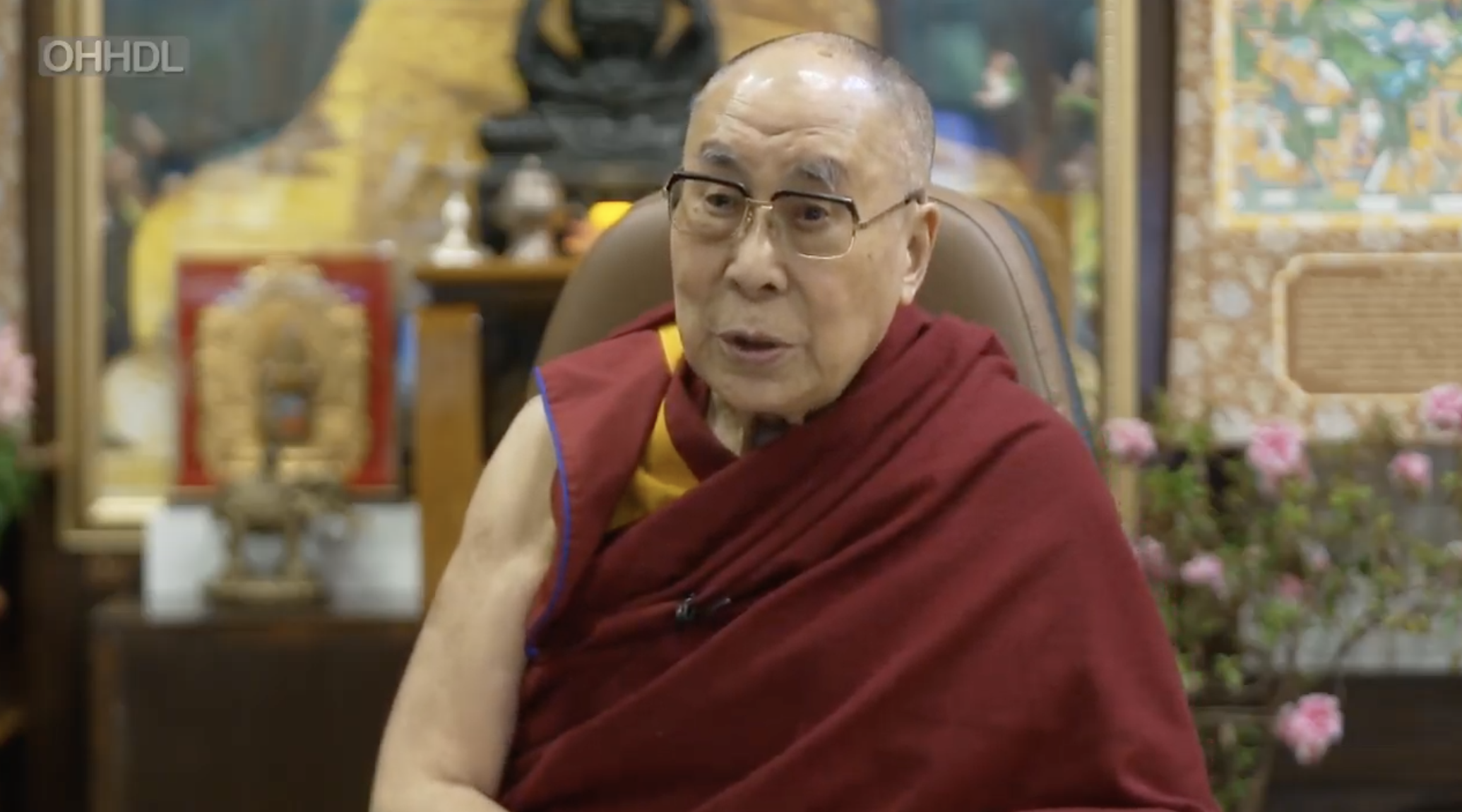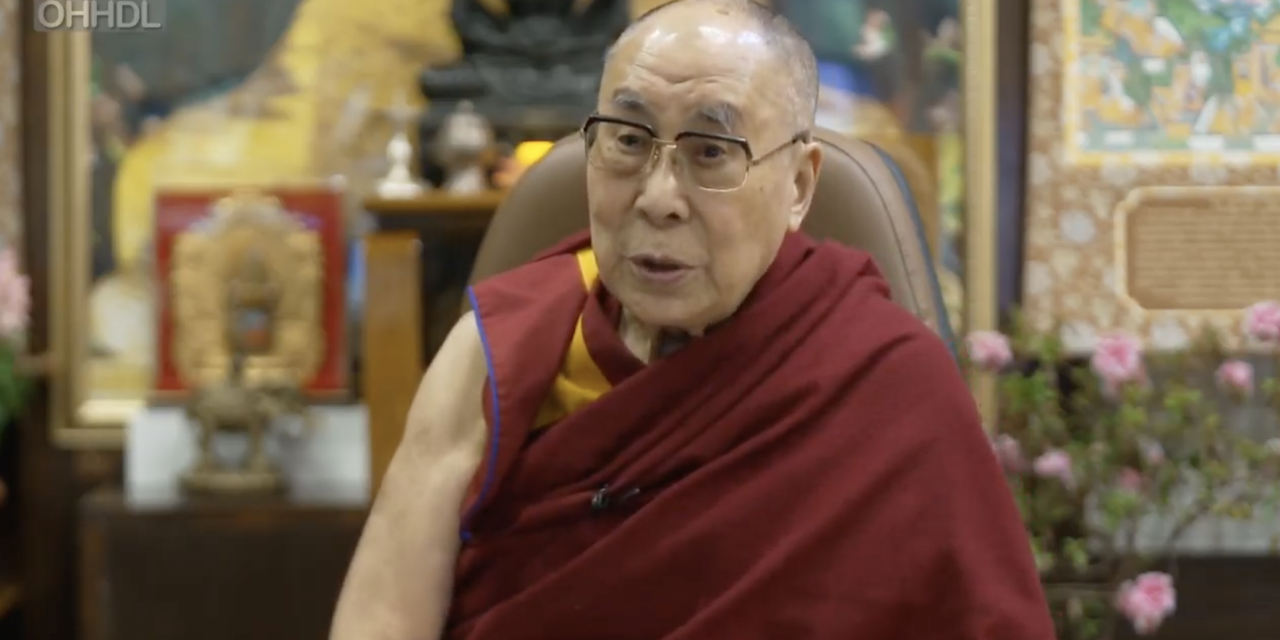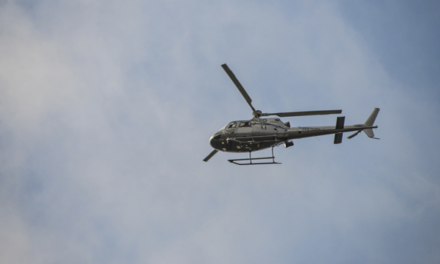Between recent political tumult, racial strife and the COVID-19 pandemic, individuals nationwide and abroad have struggled throughout the entirety of this year. During an Emory-hosted webcast on Dec. 8, His Holiness the Dalai Lama shared his thoughts on the importance of finding inner mental peace, forging meaningful relationships and meditating daily.
The 14th Dalai Lama, a presidential distinguished professor and the highest spiritual leader of Tibet, spoke with Melani Walton, co-founder of the Rob and Melani Walton Foundation, and Dr. Sanjay Gupta, associate professor in Emory’s Department of Neurosurgery and CNN chief medical correspondent.

His Holiness the 14th Dalai Lama speaks virtually to the Emory community on Dec. 8.
Given the ongoing agony of this year, Walton asked the Dalai Lama about the immediate steps people should take to foster compassion and counter injustices.
“A lot of problems … are very much related with mental peace,” the Dalai Lama said. “We should pay more attention how to develop peace of mind. Then, every human action becomes peaceful.”
Although the Dalai Lama emphasized introspection, Gupta noted the significance of community dependency in upholding safety protocols amid COVID-19.
“I find people who don’t even bother to wear a mask,” Gupta said. “As much as we want to look inward, right now we have to be dependent on each other, we have to count on each other. How can we appeal to this perspective and encourage this sort of behavior in people all over the world?”
As COVID-19 related deaths surge in the United States, the Dalai Lama explained the importance of maintaining good “emotional hygiene.”
“Too much anxiety, fear, creates possibility to get easily this illness,” the Dalai Lama said. “I feel the most important is inner peace.”
The Dalai Lama shared a story about his friend, a Tibetan monk, to bolster the import of his message. His friend was imprisoned in China for 18 years, and recalled his life being in danger. The danger stemmed from his fear that he would lose compassion toward the Chinese while being imprisoned by them.
“During those periods, … more fear, more selfish attitudes, then more problems,” the Dalai Lama said. “The ultimate source of mental peace, or hygiene of emotion, is wholeheartedness.”
Gupta recalled that the Dalai Lama previously gave him the advice to always smile genuinely, since a warm smile is vital in developing friendship and trust. However, with COVID-19 safety protocols like wearing a mask in place, people are now unable to practice this relationship building framework.
The Dalai Lama advised that a smile is not the only act that scaffolds relationships. Rather, the key factor is wholeheartedness and altruism.
“Look [at the] whole world as one body,” the Dalai Lama explained. “That really brings inner strength and with that, much less fear, much less sort of suspicion.”
Given the Dalai Lama’s suggestion that all human beings are brothers and sisters, Walton wondered what the most urgent measures younger generations should take to protect humankind.
The Dalai Lama believed a shift in education systems could place greater emphasis on the oneness of all human beings.
“Young children, they appreciate your smile,” the Dalai Lama noted. “They don’t care what nationality, what color, the family background, rich or poor. They play together, children, very equal. Once we join our school, we emphasize differences.”
Gupta noted how unlike muscles which take time to build, a brain can change very quickly, causing him to ponder how compassion can be cultivated through mediation. So, the Dalai Lama shared his daily two-part routine that helps him maintain compassion.
First, the Dalai Lama said he meditates to enhance his altruistic practices and reduce self-centered attitudes, which he views as the source of all problems. Then, he investigates his sense of self to reduce ignorance.
“These two practices combined [are] very powerful,” the Dalai Lama said. “The result … negative emotions must reduce.”
Editor-in-Chief | Matthew Chupack (he/him, 24C) is from Northbrook, Illinois, majoring in sociology & religion and minoring in community building & social change on a pre-law track. Outside of the Wheel, Chupack serves on the Emory College Honor Council, is vice president of Behind the Glass: Immigration Reflections, Treasurer of Omicron Delta Kappa leadership honor society and an RA in Dobbs Hall. In his free time, he enjoys trying new restaurants around Atlanta, catching up on pop culture news and listening to country music.






